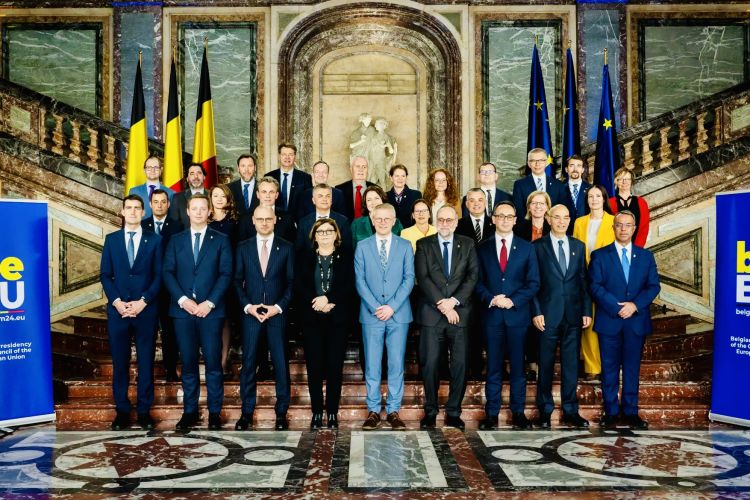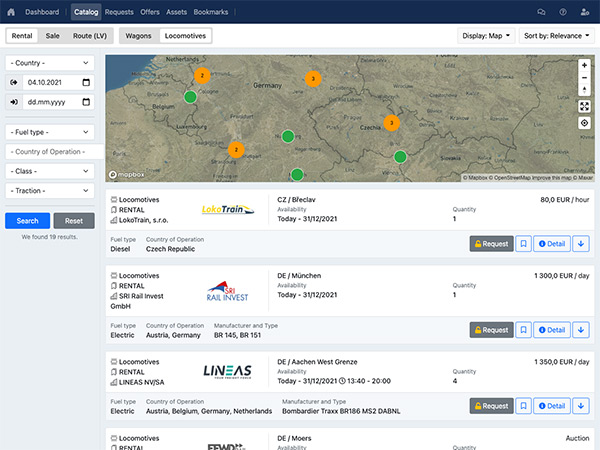The Brussels Declaration, presented after a meeting of European Transport Ministers, lays out ambitious goals for the upcoming European legislature.
Key initiatives to boost rail transport
At the heart of the declaration is the initiative to make rail the backbone of European mobility by setting binding targets for the modal share of rail along trans-European corridors. These targets will quantify progress and ensure that rail becomes a more dominant mode of transport across the continent.
The European Commission is tasked with developing an EU-wide master plan to increase the availability of rail services for both freight and passengers. This comprehensive strategy is intended to support the modal shift to rail by improving service provision and making rail a more attractive option for travellers and businesses alike.
One of the more user-focused proposals is the introduction of legislation to streamline the rail travel experience. This would allow passengers to easily compare, book and pay for door-to-door rail journeys across Europe, simplifying travel across different rail networks and ensuring continuity of travel.
The declaration also highlights the need for a specific strategy to rejuvenate night train services, including the introduction of reduced fares. The aim is to position rail as a competitive alternative to short- and medium-haul air travel, appealing to budget-conscious travellers and those seeking more sustainable travel options.
On freight, the declaration positions the development of rail freight as a key priority, with ambitious targets to double the volume of goods transported by rail by 2050. This reflects a strong commitment to improving the efficiency and capacity of rail freight services across the EU.
Regulatory adjustments are also on the agenda, with calls to improve the competitiveness of rail transport. This includes reviewing the rules on energy and fuel taxation, state aid and the application of the "polluter pays" principle to ensure that the true environmental costs of transport are reflected in prices and to promote fair competition between different modes of transport.
The declaration also recognises the importance of intermodal terminals and calls for an EU-wide assessment of their needs to ensure that they are equipped to deal effectively with the expected increase in rail traffic.
Finally, the document underlines the need to protect the EU rail industry from unfair competition and advocates measures to guard against fiscal, social or environmental disparities with third country producers.
Belgium Leads Charge on Green Mobility
The meeting underscored the urgency of reducing transport emissions by 90% by 2050 to meet Europe's climate goals. The declaration acknowledges that despite advancements in vehicle and fuel technologies, further efforts are needed to shift towards greener modes of transport.
Promoting Active Mobility and Cycling
The Brussels Declaration also focuses on enhancing active mobility and cycling. It proposes recognizing cycling and pedestrian mobility as legitimate transport modes and calls for the adoption of a European Declaration on Cycling to foster a unified cycling policy.
The declaration outlines several measures to support cycling, including increased EU funding for cycling infrastructure and protection for the European bicycle industry against unfair competition. It also recommends the establishment of a dedicated unit within the European Commission for cycling policy and urges member states to share best practices and data on active mobility.
A Call to Action for Sustainable Mobility
Concluding, the Belgian presidency invites the European Commission to take concrete steps, including drafting legislative proposals, to implement the Brussels Declaration's recommendations. This initiative represents a significant move towards sustainable mobility in Europe, with a focus on reducing emissions, promoting rail and active transportation, and ensuring the competitiveness of the European transport sector.

